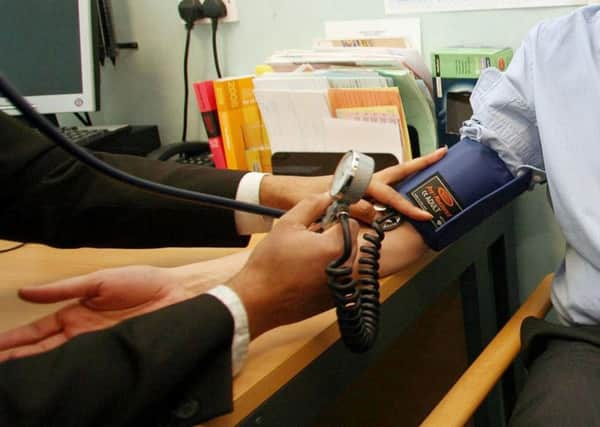HR chief Ann McConnell says respiratory and haematology services are leading the way


The authority is using a variety of methods including consultations by phone and email and physiotherapy interventions in order to reduce the number of GP patients being referred to hospitals.
Attempts have also been made to reduce the prescription of respiratory drugs where possible as five of the top six drugs prescribed in the Western Trust are respiratory drugs.
Advertisement
Hide AdAdvertisement
Hide AdAnn McConnell, HR director at the Western Trust advised the Stormont Health Committee that the same techniques will soon be applied to other specialities including diabetes, cardiology, Ear, Nose and Throat (ENT) and renal services.


She explained: “The GP decides whether specialist advice is needed and makes a referral by letter or electronically, and the patient then attends an outpatient clinic. The average cost of that is £205 per outpatient appointment.
“The opportunity to reform the process requires GPs and consultants to change their referral patterns and behaviours, and for referrals to be seen as requests for specialist advice.
“The change also requires the upskilling of the primary and community care staff to support the new models and ways of working. That is the workforce planning element of the service redesign.
Advertisement
Hide AdAdvertisement
Hide Ad“The Western Trust aims to reduce outpatient attendances by 15 per cent in the west in 2015/16.
“An example of that that is already under way is the respiratory care service. A workforce plan was developed and the HSCB local commissioning group provided the funding to support the transition to a new model of service.
“The multidisciplinary model comprised a consultant, an oxygen specialist nurse, a respiratory pharmacist and a respiratory physiotherapist.
“The service was changed so that there was a consultant-led focus on the community. “That involved outreach clinics being held, phone or virtual clinics, phone and email consultations, home oxygen assessment, drugs reviews and physiotherapy being available at home.”
Ms McConnell said this is already achieving reductions.
Advertisement
Hide AdAdvertisement
Hide Ad“The outcome in one year has been a 38 per cent reduction in the length of stay in the South West Acute Hospital for respiratory inpatients. “There were 152 new referrals contacted, and 48 of those patients were discharged.
“Using phone and email consultations, 33 admissions and 89 review clinic appointments were averted.
“The waiting time for oxygen assessment reduced by 10 months and, while all of that undoubtedly reduced admissions, there have also been considerable savings on drugs.”
“Five of the top six drugs prescribed in the Western Trust are respiratory drugs. In four months, there was a saving of approximately £70,000, and almost 100 admissions were prevented through physiotherapy interventions.
Advertisement
Hide AdAdvertisement
Hide Ad“From a performance perspective, that demonstrates real improvement. More importantly, from the patient perspective, it demonstrates improvements in the quality of care.
“Patients have reduced side effects from drugs, have interventions to avoid admission, are supported in a more timely fashion and, if admitted, have shorter hospital stays. Haematology in the west has also transformed outpatient services using similar approaches. That transformation in services can be replicated in other service areas. That work is under way in diabetes, cardiology, ENT and renal services.”